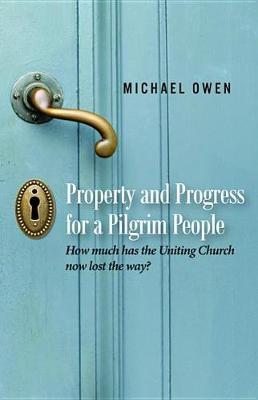Morning Star Publishing, 2017
In the Uniting Church ‘the Congregation is the embodiment in one place of the One Holy Catholic and Apostolic Church’, ‘the primary expression of the corporate life of the Church’ and is responsible for ‘providing facilities and resources in support of the work of the Congregation’ [BoU §15(a); UCA Constitution sec. 22; Reg. 3.1.1 (c)(iv)].
In his new book Property and Progress for a Pilgrim People, Michael Owen reflects on recent policies, regulations and decisions relating to property in the Uniting Church. A congregation’s property is held by a synod property trust for the beneficial use of the congregation. A congregation is financially and practically responsible for its property. But to whom does a congregation’s property really belong? The National Property Policy (2011) says it belongs ‘to God’, to the ‘whole people of God’ and to the ‘Uniting Church in Australia’. Owen argues from the Basis of Union and from the Regulations that it belongs to the congregation.
He asserts that one council, such as a synod, cannot make an executive decision to sell or transfer a property held in trust for the use of another, such as a congregation, nor benefit from the proceeds of such a sale. He describes recent examples of this having happened as reflecting a growing power imbalance between councils of the church. He contends that this imbalance is driven by managerialism in synod operations and a pursuit of ‘progress’, and that in this imbalance, the life of worship, witness and service of congregations is lost as ‘the primary expression of the corporate life of the Church’.
Owen’s analysis is challenging. It is, however, inevitable that synod operations should develop in response to growing responsibilities for property. This growth has benefited the church in having a synod structure with which to respond to other state-based legal issues such as child safety legislation. It is also true that secular organisational trends have influenced the church throughout its forty years but these are often most visible in retrospect and hard to discern in the moment. Managerialism is now giving way to leadership studies in many places and no doubt another new theory and attendant restructure lies ahead. In an Assembly year it is timely to be reminded of the perennial call to follow Christ the risen crucified one in all matters, spiritual, material and organisational.
Michael Owen is generous in the energy he devotes to offering these reflections and challenges to the church. We are not at the end of tough decisions about property and for this reason Property and Progress for a Pilgrim People is important reading.
Rachel Kronberger
